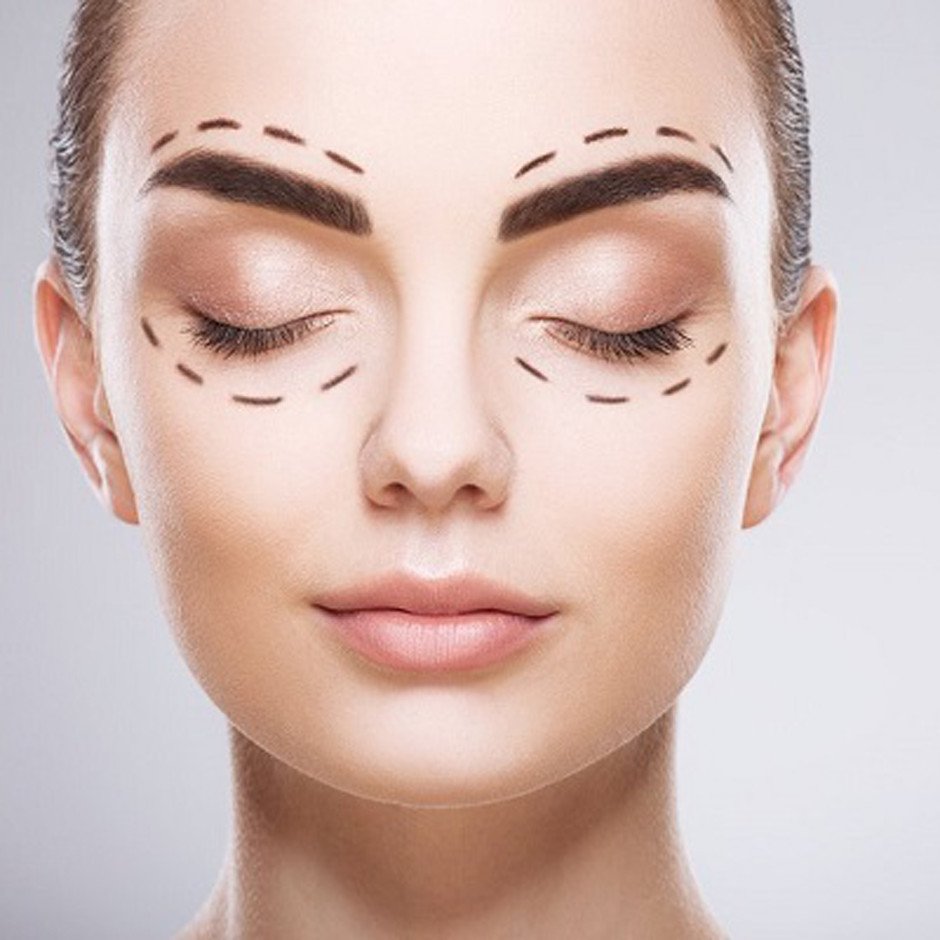Faqs About Eyelid Surgery: Everything You Need To Know

Are you considering eyelid surgery but have questions about the procedure? You’re not alone! Many people are curious about eyelid surgery and its potential risks and benefits. In this blog post, we’ll cover the most frequently asked questions about eyelid surgery so that you can make an informed decision about whether or not the procedure is right for you. Read on to learn more about eyelid surgery and find out everything you need to know!
What is eyelid surgery?
Eyelid surgery, also known as blepharoplasty, is a surgical procedure that is used to correct sagging or drooping eyelids and under-eye bags. It can also remove excess fat, skin, and muscle around the eyelids. During the procedure, an incision is made along the natural crease of the upper or lower eyelid, and excess skin and fat are carefully removed. The procedure may be done on the upper, lower, or both, depending on the patient’s needs. Depending on the severity of the problem, eyelid surgery can take anywhere from one to three hours to complete. Once the procedure is finished, the area around the eye will be bandaged to help promote healing.
Who is a good candidate for eyelid surgery?
Eyelid surgery (blepharoplasty) is a cosmetic procedure that can help improve the appearance of your eyes by removing excess fat and skin from the upper and lower eyelids. It is often used to reduce sagging skin, bags under the eyes, and droopy eyelids.
The best candidate for eyelid surgery is someone who is in good health, does not smoke, and has realistic expectations about the procedure’s results. It is important to have an open discussion with your plastic surgeon about your desired outcome so that they can determine if you are a good candidate for the procedure.
In general, most people considering eyelid surgery should be 18 years or older and should not have any major medical conditions that could complicate the procedure or recovery. Additionally, individuals with poor vision due to eye conditions such as cataracts should not undergo eyelid surgery.
Your plastic surgeon will be able to evaluate your health, the condition of your skin, and any other factors that may affect the success of your surgery. During this consultation process, they will discuss the benefits and risks associated with the procedure and develop a personalized plan to ensure the best possible outcome.
What are the benefits of eyelid surgery?
Eyelid surgery, also known as blepharoplasty, is a surgical procedure designed to improve the appearance of the upper and lower eyelids. The procedure can be performed on both men and women and can address various cosmetic concerns, from bags or dark circles under the eyes to drooping or loose skin around the eyes. The benefits of eyelid surgery include the following:
- Reduced puffiness and sagging skin:Eyelid surgery can dramatically reduce the appearance of puffiness and sagging skin around the eyes, resulting in a more youthful and alert look.
- Improved vision:In some cases, drooping or loose skin around the eyes can obstruct vision. Blepharoplasty can help to improve vision in these cases by removing excess skin.
- Better appearance:Many patients opt for eyelid surgery to improve their overall appearance and give them a more refreshed look.
- Increased self-confidence:After eyelid surgery, many patients feel more confident in their appearance and report increased self-esteem.
- Long-lasting results:Eyelid surgery produces long-lasting results, so you can enjoy your improved appearance for years to come.
By addressing common cosmetic issues such as puffiness and sagging skin around the eyes, eyelid surgery can help to enhance your appearance and boost your confidence. With long-lasting results and minimal downtime, it’s no wonder that so many people choose to undergo this popular procedure.
Does insurance cover eyelid surgery?
In some cases, insurance may cover eyelid surgery if it is deemed medically necessary to improve vision or treat a condition such as ptosis (droopy eyelid). However, insurance usually does not cover cosmetic eyelid surgery.
How long does it take to recover from eyelid surgery?
Recovery from eyelid surgery typically takes one to two weeks. It is important to follow your doctor’s post-operative instructions closely during this time to ensure a smooth and successful recovery. Immediately following the procedure, your eyes may be swollen, and you may experience minor discomfort or irritation. These symptoms should subside within one to two days.
Your doctor will provide you with medication to help reduce any pain or swelling. In addition, you should wear an eye shield at night for the first week to protect your eyes from any potential injury. It would help if you also planned on avoiding strenuous activities, including exercise and heavy lifting, for at least one week after your procedure.
It is important to remember that everyone’s recovery time will vary depending on their specific situation. If you have any questions or concerns about your recovery period, it is best to consult your doctor. With proper care and attention, you can rest assured that your recovery from eyelid surgery will be successful.
Are there any risks or complications associated with eyelid surgery?
Yes, there are potential risks and complications associated with eyelid surgery. These include bleeding, infection, dry eyes, swelling and discomfort, blurred vision, asymmetry, skin color or texture changes, scarring, and ptosis (droopy eyelids). Rarely, more serious complications such as vision loss, eyelid malposition, corneal abrasion, and excessive tearing can occur.
It is important to consult with an experienced plastic surgeon or ophthalmologist about the risks of eyelid surgery before deciding whether or not to proceed with the procedure. You should also discuss the potential benefits and any possible alternatives. It is important to follow your doctor’s instructions carefully before and after the surgery to help minimize the risk of any complications.
How much does eyelid surgery cost?
The total price of an eyelid surgery procedure is subject to multiple elements, including the scope of the surgery, the surgeon’s fees, and additional components. Thus, reviewing the costs and possible financing alternatives with your surgeon is crucial.


